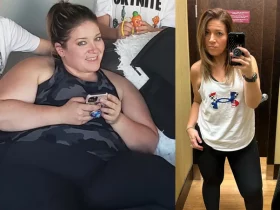Living a healthy life is essential for our overall well-being. Healthful practices, such as a balanced diet, regular exercise, good sleep habits, and stress reduction techniques, are crucial for maintaining a healthy lifestyle.
The New York Times (NYT) has been a trusted source of information and advice on various topics, including health and wellness. In this blog post, we will look at some healthful practices collectively nyt recommended by the NYT to improve your lifestyle.
Healthy Eating Habits
Eating a healthy, balanced diet is the foundation of a healthy lifestyle. The NYT recommends incorporating more whole foods, such as fruits, vegetables, whole grains, lean protein, and healthy fats, into your diet.
It is essential to limit the consumption of processed foods, added sugars, and saturated fats. Here are some tips for healthy eating habits:
- Plan your meals ahead of time and prepare them at home as much as possible.
- Choose lean sources of protein, such as chicken, fish, and legumes.
- Opt for whole-grain bread, pasta, and rice instead of refined grains.
- Eat plenty of fruits and vegetables of different colors to get a variety of nutrients.
- Limit your intake of sugary drinks and opt for water or unsweetened beverages instead.
One of the best ways to eat healthily is by planning your meals ahead of time. Meal planning allows you to prepare healthy meals at home, save time, and reduce food waste.
When planning your meals, aim to include a variety of whole foods, such as fruits, vegetables, whole grains, and lean protein. Incorporating a variety of colorful fruits and vegetables into your diet ensures that you get a wide range of nutrients.
Try to include at least one serving of fruits or vegetables at each meal. For example, you could add berries to your breakfast cereal, a salad to your lunch, and roasted vegetables to your dinner.
Choosing lean sources of protein is also essential for a healthy diet. Lean proteins, such as chicken, fish, and legumes, provide the necessary nutrients without the added fat and calories. Avoid processed meats, such as bacon, sausage, and deli meats, which are high in sodium and saturated fat.
Another tip for healthy eating is to opt for whole-grain bread, pasta, and rice instead of refined grains. Whole grains are rich in fiber and nutrients, whereas refined grains are stripped of their fiber and nutrients during processing.
Eating whole grains can help regulate blood sugar levels, reduce the risk of heart disease, and aid in weight management.
Finally, it is essential to limit the consumption of sugary drinks and opt for water or unsweetened beverages instead. Sugary drinks, such as soda and fruit juices, are high in calories and can contribute to weight gain and other health problems. Water, on the other hand, is essential for hydration and has zero calories.
Regular Exercise
Physical activity is crucial for maintaining a healthy weight, building strength, and improving overall health. The NYT recommends that adults should aim for at least 150 minutes of moderate-intensity exercise or 75 minutes of vigorous-intensity exercise each week. Here are some tips for incorporating exercise into your routine:
- Find an activity that you enjoy, such as walking, running, cycling, or swimming.
- Make it a habit to exercise at the same time each day, such as in the morning or after work.
- Incorporate strength-training exercises, such as weight lifting or resistance bands, to build muscle and improve bone density.
- Take breaks throughout the day to stretch or walk around if you have a sedentary job.
- Consider joining a fitness class or working with a personal trainer to stay motivated and accountable
One of the best ways to incorporate exercise into your routine is by finding an activity that you enjoy. This can be anything from walking, running, cycling, or swimming to playing sports or taking dance classes.
Choosing an activity that you enjoy can make exercise feel less like a chore and more like a fun and enjoyable experience.
Another tip for incorporating exercise into your routine is to make it a habit. This can be as simple as scheduling your workouts at the same time each day, such as in the morning or after work. By making exercise a regular part of your routine, it becomes easier to stick to and less likely to fall by the wayside.
Strength-training exercises, such as weight lifting or resistance bands, are also crucial for building muscle and improving bone density. Adding strength training to your exercise routine can help you achieve a leaner and more toned physique, as well as reducing the risk of osteoporosis and other age-related conditions.
If you have a sedentary job, it is essential to take breaks throughout the day to stretch or walk around. Sitting for extended periods can have negative effects on your health, such as increasing the risk of obesity, heart disease, and diabetes. Taking regular breaks to move around can help counteract these negative effects and improve your overall health.
Finally, consider joining a fitness class or working with a personal trainer to stay motivated and accountable. Group fitness classes can be a fun and enjoyable way to exercise, and having a personal trainer can provide you with personalized guidance and support.
Good Sleep Habits Getting enough sleep is essential for our physical and mental health. The NYT recommends that adults should aim for 7-8 hours of sleep each night.
Here are some tips for good sleep habits:
- Stick to a regular sleep schedule by going to bed and waking up at the same time each day.
- Create a relaxing bedtime routine, such as taking a warm bath, reading a book, or practicing meditation or deep breathing exercises.
- Make your bedroom conducive to sleep by keeping it cool, dark, and quiet.
- Avoid using electronics before bedtime, as the blue light can interfere with your sleep.
- Limit your caffeine intake, especially in the afternoon and evening.
One of the most important tips for good sleep habits is to stick to a regular sleep schedule. Going to bed and waking up at the same time each day can help regulate your body’s internal clock and improve the quality of your sleep.
Creating a relaxing bedtime routine, such as taking a warm bath, reading a book, or practicing meditation or deep breathing exercises, can also help you relax and prepare for sleep.
Making your bedroom conducive to sleep is also essential. Keep your bedroom cool, dark, and quiet to create a comfortable sleeping environment. Use blackout curtains or a sleep mask to block out light, and consider using earplugs or white noise machines to reduce noise.
Avoid using electronics before bedtime, as the blue light emitted by electronic devices can interfere with your sleep.
Blue light suppresses the production of melatonin, a hormone that regulates sleep, and can disrupt your circadian rhythm.
Try to limit your use of electronic devices before bedtime, and consider using apps or programs that filter out blue light.
Finally, limit your caffeine intake, especially in the afternoon and evening. Caffeine is a stimulant that can interfere with your sleep and make it difficult to fall asleep or stay asleep.
Try to avoid caffeine in the afternoon and evening, and consider switching to decaffeinated beverages or herbal teas.
Stress Reduction Chronic stress can have negative effects on our physical and mental health. The NYT recommends incorporating stress-reducing practices into your daily routine.
Here are some tips:
- Practice mindfulness meditation or deep breathing exercises to reduce anxiety and stress.
- Spend time in nature, such as taking a walk in a park or going for a hike.
- Socialize with friends and family to reduce feelings of isolation and loneliness.
- Set realistic expectations for yourself and prioritize self-care.
One of the best ways to reduce stress is through mindfulness meditation or deep breathing exercises. These practices can help you focus your attention on the present moment, reduce anxiety, and calm your mind. They are easy to do and can be practiced anywhere, at any time.
Engaging in a relaxing activity, such as yoga, tai chi, or a massage, can also help reduce stress. These activities can help you relax, reduce muscle tension, and improve your overall sense of well-being.
Spending time in nature, such as taking a walk in a park or going for a hike, is another great way to reduce stress. Nature has a calming effect on the mind and can help reduce feelings of anxiety and stress.
Socializing with friends and family is also important for reducing stress. Spending time with loved ones can help you feel supported and connected, which can help reduce feelings of isolation and loneliness.
Finally, setting realistic expectations for yourself and prioritizing self-care is crucial for reducing stress. Learning to say no to unreasonable demands, taking time for yourself to relax and recharge, and practicing self-compassion can all help reduce stress and improve your overall well-being.
Conclusion
Incorporating healthful practices into our daily routines can improve our physical and mental health and overall well-being. The New York Times provides valuable tips and advice for healthy eating habits, regular exercise, good sleep habits, and stress reduction.
By following these tips, we can improve our lifestyles and lead healthier, happier lives. Remember to always consult with a healthcare professional before starting any new diet or exercise program, and to listen to your body and make adjustments as necessary.










Hello!! My name is Annabella
I love to eat, travel, and eat some more! I am married to the man of my dreams and have a beautiful little girl whose smiles can brighten anyone’s day!